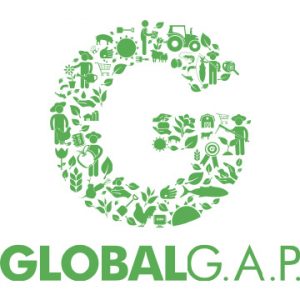Global G.A.P. certifies fruit and vegetables and guarantees the application of best practices in agriculture and allows us to qualify agricultural production in large-scale distribution and international markets.
INFORMATIONS
 GLOBAL G.A.P. is an international organization, participated by the main distribution groups, established with the aim of standardizing voluntary standards for Good Agricultural Practices (Good Agricultural Practice) applicable globally.
GLOBAL G.A.P. is an international organization, participated by the main distribution groups, established with the aim of standardizing voluntary standards for Good Agricultural Practices (Good Agricultural Practice) applicable globally.
The main requirements covered by the GlobalG.A.P standard are:
- Company traceability
- Environmental aspects (waste management, environmental impact, soil management, fertilizer use)
- Health, safety of company workers and related working conditions
- Product (application of pesticides, irrigation, integrated defense techniques, product collection and handling methods)
- Process controls and correct business management.
The GLOBAL G.A.P. certification applies both to individual companies (option 1) and to Producer Groups (option 2): Cooperatives, Consortia, Producer Organization etc.
The latter is also required to create a documented Quality System, which allows the relationships between the producer members to be adjusted correctly and to ensure that all operate in compliance with the requirements of the standard.
GLOBALG.A.P. provides for annual surveillance inspections of all certified producers, to which extraordinary inspections can be added without prior notice. The standard pays particular attention to the health and safety of workers.
ICEA is accredited for the issue of the certification of fresh fruit and vegetable productions (field of application “Crops” – subfield “Fruit and Vegetables“).
From 2019 it is mandatory to apply the V5_2 version of the standard.

